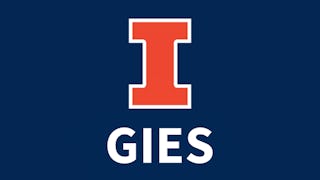Financial Accounting is often called the language of business; it is the language that managers use to communicate the firm's financial and economic information to external parties such as shareholders and creditors. Nobody working in business can afford financial illiteracy. Whether you run your own business, work as a manager or are just starting your career, you want to understand financial information and be able to interact with accountants, controllers, and financial managers. You want to talk business!

Cultivate your career with expert-led programs, job-ready certificates, and 10,000 ways to grow. All for $25/month, billed annually. Save now


Accounting: Principles of Financial Accounting
This course is part of multiple programs.

Instructor: Marc Badia
145,757 already enrolled
Included with 
(3,166 reviews)
Skills you'll gain
Details to know

Add to your LinkedIn profile
5 assignments
See how employees at top companies are mastering in-demand skills

Build your subject-matter expertise
- Learn new concepts from industry experts
- Gain a foundational understanding of a subject or tool
- Develop job-relevant skills with hands-on projects
- Earn a shareable career certificate


Earn a career certificate
Add this credential to your LinkedIn profile, resume, or CV
Share it on social media and in your performance review

There are 4 modules in this course
Welcome! Before you start today's videos, please have a look at the syllabus. In this first session, I'll give you an overview of what accounting is all about and why it's important to have a basic proficiency in this "language." In addition, I'll introduce one of the most important financial reports - the balance sheet - and a practical real-world case so you can put theory into practice. Objectives: To gain insight into the essence of accounting and become familiar with the balance sheet and its purpose.
What's included
10 videos8 readings1 assignment
Now that you are familiar with the balance sheet, in week two we'll learn how to account for a variety of transactions. In addition, I'll introduce you to another key financial report: the income statement. Course objectives: To be able to recognize a broader range of transactions on the balance sheet and to become familiar with the income statement.
What's included
11 videos5 readings1 assignment
Now that you have a good grasp of the balance sheet and income statement, I'll help you master how to recognize the transactions we went over in week two. I'll also introduce a third financial report - the cash flow statement - and discuss liquidity. Course objectives: To understand the difference between liquidity and profitability, become familiar with T-accounts and gain insight into the purpose of the cash flow report.
What's included
14 videos4 readings1 assignment
By using accrual accounting we can measure performance when a financial transaction takes place, even if no cash has actually changed hands. In this final session, we'll discuss the difference between accrual and cash accounting and also read and interpret a real enterprise's financial statements. Course objectives: By the end of the session, you will be able to handle numerous transactions for the purposes of financial reporting, and understand the advantages of accrual accounting.
What's included
11 videos6 readings2 assignments1 peer review
Instructor

Offered by
Recommended if you're interested in Finance


University of Pennsylvania


Macquarie University


University of Illinois Urbana-Champaign


Politecnico di Milano
Why people choose Coursera for their career




Learner reviews
3,166 reviews
- 5 stars
85.26%
- 4 stars
12.68%
- 3 stars
1.16%
- 2 stars
0.15%
- 1 star
0.72%
Showing 3 of 3166
Reviewed on Oct 5, 2020
Its an Good course to know more about basic of Accounts, it will help u to learn more about basic and clear out issue regarding balance sheet. Income statement and financial statements.
Reviewed on Jun 30, 2017
Excellent teaching style and ver god knowledge. I am now able to read and understanding the balance, income statement, profit and loss statement and cash statement of various companies.
Reviewed on Jun 20, 2023
A thorough introduction to Accounting for newcomers as well as a great refresher course. Examples are practical and easy to understand, while still challenging your thinking. Really enjoyed it.
New to Finance? Start here.

Open new doors with Coursera Plus
Unlimited access to 10,000+ world-class courses, hands-on projects, and job-ready certificate programs - all included in your subscription
Advance your career with an online degree
Earn a degree from world-class universities - 100% online
Join over 3,400 global companies that choose Coursera for Business
Upskill your employees to excel in the digital economy
Frequently asked questions
Access to lectures and assignments depends on your type of enrollment. If you take a course in audit mode, you will be able to see most course materials for free. To access graded assignments and to earn a Certificate, you will need to purchase the Certificate experience, during or after your audit. If you don't see the audit option:
The course may not offer an audit option. You can try a Free Trial instead, or apply for Financial Aid.
The course may offer 'Full Course, No Certificate' instead. This option lets you see all course materials, submit required assessments, and get a final grade. This also means that you will not be able to purchase a Certificate experience.
When you enroll in the course, you get access to all of the courses in the Specialization, and you earn a certificate when you complete the work. Your electronic Certificate will be added to your Accomplishments page - from there, you can print your Certificate or add it to your LinkedIn profile. If you only want to read and view the course content, you can audit the course for free.
If you subscribed, you get a 7-day free trial during which you can cancel at no penalty. After that, we don’t give refunds, but you can cancel your subscription at any time. See our full refund policy.
More questions
Financial aid available,

